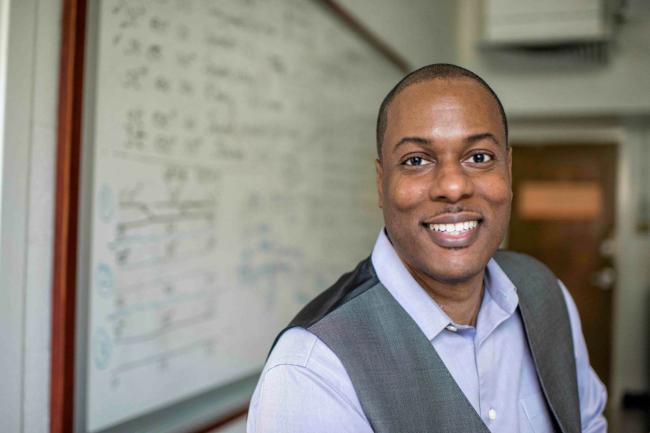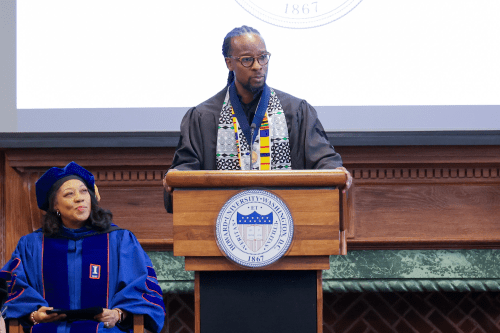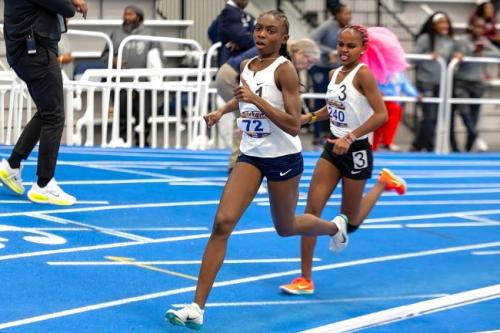WASHINGTON - Howard University’s Department of Biology, within the College of Arts & Sciences, has been awarded $400,000 from the National Science Foundation (NSF) to implement a cutting-edge program to support the training of more than 500 undergraduate students in data science with a focus on biology.
“It is with great pride that we are witnessing and experiencing faculty research that focuses on the future of STEM, and we are proud that Dr. Michael Campbell, along with Dr. Atanu Duttaroy, Dr. Shaolei Teng and Dr. Stacy Farina are forging this future,” said Vice President of Research, Bruce Jones, Ph.D. “The need to increase the diversity of the data science field, is one effort we will succeed in with the support of the National Science Foundation funding.”
Michael C. Campbell, Ph.D., the principal investigator on the grant-funded project, titled “Targeted Infusion Project: Inspiring, Engaging and Retaining Underrepresented Students in Computing Research and the Emerging Field of Data Science,” plans to succeed with three major program outcomes, which includes updating the infrastructure of their department for optimal success.
“This project aims to introduce data science techniques into the core biology curriculum and then develop these basic skills further through project-based activities in upper year Biology elective courses. In the end, students will learn advanced computational skills and how to apply them to the analysis of real world data,” said Campbell.
In these same upper-year courses, instructors will actively immerse undergraduates in the primary literature related to their data science-driven projects using several active learning approaches, and promote the development of students’ science communication skills. Anticipated outcomes from these activities include: increased ability to synthesize, interpret and present information gathered from the primary literature; and greater confidence in research capability and knowledge.
With ongoing advances in technology, scientists are now able to generate massive amounts of data which need to be analyzed using computational methods with the goal of gaining new insights into biological phenomena. Moreover, as daily life grows more dependent on data, work across all fields is becoming more data driven. As a result, college graduates entering the workforce will need to have the requisite skills to analyze data effectively.
“Through our activities, we endeavor to enhance students’ competitiveness for graduate studies and future employability in a variety of settings, including biomedical and environmental sciences, research education, and public service,” said Campbell.
“Overall, this project will simultaneously serve as an entry point to inspire, retain and engage underrepresented student populations in the emerging field of data science.”
# # #
(headshot courtesy of Dr. Michael Campbell)
About Howard University
Founded in 1867, Howard University is a private, research university that is comprised of 13 schools and colleges. Students pursue studies in more than 120 areas leading to undergraduate, graduate and professional degrees. The University operates with a commitment to Excellence in Truth and Service and has produced one Schwarzman Scholar, three Marshall Scholars, four Rhodes Scholars, 11 Truman Scholars, 25 Pickering Fellows and more than 165 Fulbright recipients. Howard also produces more on-campus African-American Ph.D. recipients than any other university in the United States. For more information on Howard University, visit www.howard.edu.
Media Contact: Imani Pope-Johns, imani.popejohns@howard.edu





